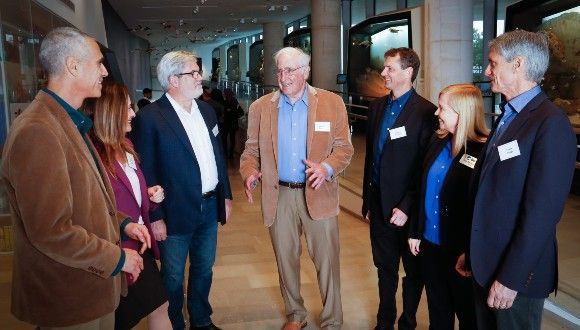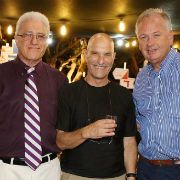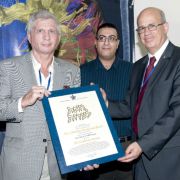TAU Partners with Bay Area Foundations on Neurodegenerative Diseases
By 2050, an estimated 140 million patients worldwide are expected to contract neurodegenerative diseases, including Huntington’s disease, Alzheimer’s, Parkinson’s and Amyotrophic Lateral Sclerosis (ALS). None are curable and major pharma companies have drastically minimized drug development in the field due to low success rates.
Now, with the support of the Koret Foundation and Taube Philanthropies, Tel Aviv University researchers have embarked on a groundbreaking collaboration with Stanford University to understand and find therapies for these diseases.
Anchoring the partnership is the Koret Foundation, a Jewish philanthropic organization based in San Francisco whose mission is to support education, the arts, and the Jewish Community. Koret has directed $ 2.5 million to TAU researchers. Simultaneously, Taube Philanthropies has directed the same donation to a group led by Stanford University.
The Taube-Koret Global Collaboration in Neurodegenerative Diseases was the brainchild of Tad Taube, Chairman of Taube Philanthropies and President Emeritus of the Koret Foundation, who sought to initiate research cooperation in the field between TAU and Bay Area institutions.
The partnership was launched with a symposium, Toward Personalized Diagnosis and Drug Screening, held at TAU in January 2020. The goal of the collaboration is expanding brain research while simultaneously strengthening US-Israel academic ties. The partner institutions are Stanford University, the Gladstone Institute at the University of California San Francisco (UCSF), and the Buck Institute – a biomedical research institute specializing in aging.
Research conducted during the five-year initiative aims to characterize biomarkers to identify patients at risk of contracting neurodegenerative diseases and to test new drugs. Now, halfway into the first year, the researchers are already advancing new strategies for drug development and creating personalized platforms for diagnosis and drug screening.
Brain science without borders
The researchers’ ability to exchange adult stem cells derived from patients in both the US and Israel makes this research unique and effective, according to Prof. Karen Avraham, Vice Dean of the Sackler Faculty of Medicine and member of the Taube-Koret Collaboration Steering Committee.
“We are harvesting skin cells from patients, turning them into neurons and transforming them into cells that mimic disease,” says Prof. Uri Ashery, Director of the Sagol School of Neuroscience and a researcher in the Collaboration. “From there, we can apply new drugs and treatments.”
Ashery explains that the novel research directions are only possible in the context of the Collaboration, which has provided the team with cutting-edge equipment and resources, including state-of-the-art microscopy equipment for high-quality brain imaging.
Stanford University Pediatric Oncologist Dr. Harvey Cohen’s involvement was key in making the Collaboration possible, which he directs from the Bay Area side. Dr. Anita Friedman, TAU’s Global Campaign Co-chair and President of the Koret Foundation, was approached by Taube to support the TAU component, continuing a long tradition of Koret-Taube partnership on important issues in the Jewish world, education and science. Dr. Friedman also founded the TAU-Bay Area Collaborative Initiative for joint Israeli-US research in bioinformatics and smart cities in 2018.
"What they're doing at Tel Aviv University is so terrific in terms of technology and ideas, and will mesh so well with the new initiative Tad just started in the Bay Area," said Cohen in his greetings at the January symposium.
“We are extremely fortunate that such prominent institutions in the US have joined forces with us,” says Avraham. “The strength of research comes from many scientists working in these areas, and this is an incredibly dedicated group of people.”






